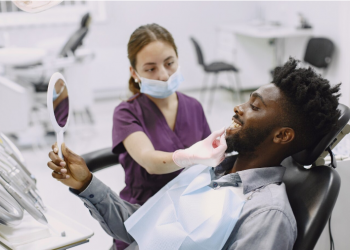As men age, maintaining optimal health becomes increasingly important. Testosterone, often referred to as the “male hormone,” plays a vital role in various aspects of men’s health, including muscle mass, energy levels, libido, and cognitive function. However, testosterone levels naturally decline with age, leading to potential health issues. In this article, we’ll explore how testosterone can help you stay healthy after 40 and discuss strategies for maintaining optimal levels.
Understanding Testosterone
Testosterone is a hormone produced primarily in the testicles and is responsible for the development of male reproductive tissues and characteristics. Beyond its role in sexual development, testosterone plays a crucial role in maintaining muscle mass, bone density, and red blood cell production. It also influences mood, cognition, and overall sense of well-being.
Testosterone Levels After 40
After the age of 40, men typically experience a gradual decline in testosterone levels. This age-related decline, known as andropause, can result in symptoms such as fatigue, reduced muscle mass, decreased libido, and changes in mood. While some decline in testosterone is natural with age, excessively low levels can have significant health implications.
One of the best ways to maintain and increase testosterone is to take testosterone boosters. These are supplements designed to naturally enhance the production of testosterone, a crucial hormone responsible for various bodily functions, including muscle growth, libido, and energy levels. These supplements often contain ingredients like tribulus terrestris, fenugreek extract, and D-aspartic acid, which are believed to support testosterone production.
By stimulating the body’s natural processes, testosterone boosters can help individuals experience increased muscle mass, improved athletic performance, and heightened libido. While results may vary depending on individual physiology, proper usage of testosterone boosters, combined with a balanced diet and regular exercise, can contribute to overall well-being and vitality in men seeking to optimize their testosterone levels. Always consult a healthcare professional before starting any supplement regimen.
Benefits of Optimal Testosterone Levels
Maintaining optimal testosterone levels can offer numerous health benefits for men over 40.
Muscle Mass and Strength: Testosterone plays a crucial role in maintaining muscle mass and strength, which is essential for overall physical function and mobility.
Energy Levels and Vitality: Optimal testosterone levels can help boost energy levels, reduce fatigue, and enhance overall vitality, allowing men to stay active and engaged in daily activities.
Libido and Sexual Function: Testosterone is closely linked to libido and sexual function in men. Ensuring adequate levels of testosterone can help maintain a healthy sex drive and improve erectile function.
Cognitive Function and Mood: Testosterone influences cognitive function, including memory, concentration, and problem-solving skills. It also plays a role in regulating mood, with low levels being associated with increased risk of depression and mood swings.
Natural Ways to Boost Testosterone
While testosterone levels naturally decline with age, there are several lifestyle modifications that men can adopt to support healthy testosterone production:
Healthy Diet and Nutrition: Consuming a balanced diet rich in protein, healthy fats, vitamins, and minerals can support optimal testosterone production. Foods such as lean meats, fish, fruits, vegetables, nuts, and seeds are beneficial for hormonal health.
Regular Exercise and Strength Training: Engaging in regular physical activity, particularly resistance training, can help stimulate testosterone production and maintain muscle mass. Aim for a combination of cardiovascular exercise and strength training for best results.
Sufficient Sleep and Stress Management: Prioritize adequate sleep and stress management techniques such as meditation, yoga, or deep breathing exercises. Chronic stress and sleep deprivation can negatively impact testosterone levels.
Avoidance of Excessive Alcohol and Smoking: Limit alcohol consumption and avoid smoking, as both can interfere with testosterone production and overall health.
Testosterone Replacement Therapy (TRT)
In cases where testosterone levels are significantly low and impacting quality of life, testosterone replacement therapy (TRT) may be considered. TRT involves administering testosterone through injections, patches, gels, or implants to restore levels to a normal range. However, TRT is not without risks and should be carefully monitored by a healthcare professional.
Consultation with a Healthcare Professional
If you suspect you may have low testosterone or are experiencing symptoms of andropause, it’s essential to consult with a healthcare professional.









